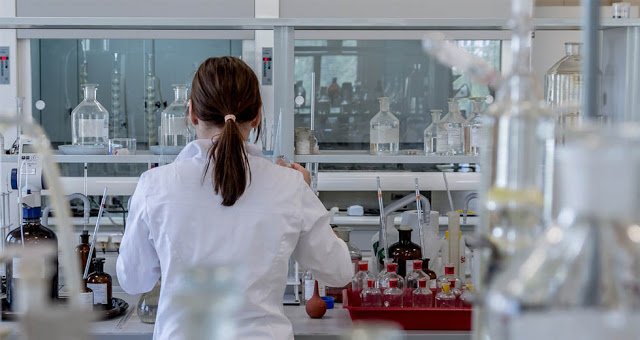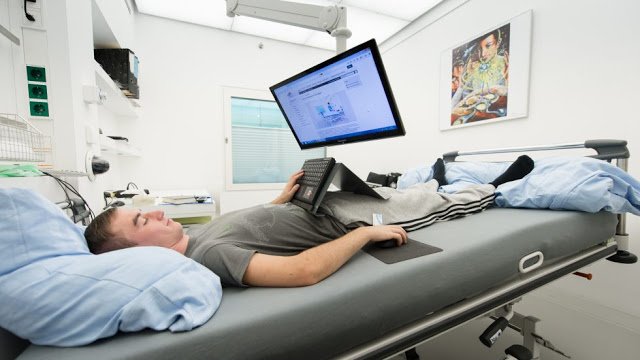In addition to attracting prestigious experts with a bulky curriculum, many research centers and hospitals occasionally hang a "wanted" poster to locate subjects with certain requirements to participate in a study. Being between 18 and 50 years old, being a healthy person and not having an allergy to any medication are usually the most common. Thus, a citizen on foot can contribute to scientific progress sometimes receiving a remuneration or some type of compensation without having to work too hard.

What's more, you do not have to have a hard time while collaborating on an investigation. For example, science can be helped by ingesting alcoholic beverages. A clinical study of the Hospital del Mar Medical Research Institute in Barcelona selected volunteers between 55 and 80 years old, in this case with a health problem (they had to present three or more cardiovascular risk factors, such as being smokers and having hypertension or cholesterol ) in order to demonstrate if the moderate consumption of wine, combined with the natural compound tyrosol, can reduce the risk of developing diseases related to heart problems.

For their participation, the participants were offered "an economic contribution" and, of course, the drink and capsules needed for the experiment. Now, helping science with a glass of wine is not the only peculiar way to lend a hand to researchers while earning some money: some studies come to offer large sums to improve life on Earth or even in life. space

16,000 euros for a 'job' of 88 days in which, literally, nothing has to be done. That is the amount that the Institute of Medicine and Space Physiology of Toulouse (France) offered a few months ago to the volunteers who participated in a study to help the astronauts of the future to better prepare themselves to return to Earth after spending time in the space.
Although the conditions may seem attractive, the truth is that the clinical trial required a good dose of patience and a certain lack of modesty: the participants, men between 20 and 45 years non-smokers, have spent two whole months in bed, Unable to get down from it to eat, wash or relieve themselves.
Being so long prostrate, with the head slightly tilted down, has served to investigate whether a series of antioxidants and vitamins could help astronauts to combat the effects of living in space, including the loss of muscle and bone mass or the alterations of the cardiovascular system that also suffered the study participants.
The one of a few months ago was the second occasion in which the European Space Agency (ESA) has made this curious "rest study", an experiment that NASA has also carried out on numerous occasions, the last one being just a few months in collaboration with the German Space Center (DLR for its acronym in English).
Participants who have taken a step for humanity without setting foot on the ground have also received a large compensation from the US space agency: a few years ago, they offered $ 18,000 (14,000 euros) for living between sheets for 70 days .
In other occasions, it is enough to sleep to obtain a good economic sum. The professors of the School of Medicine of the University of Harvard, for example, look for volunteers to realize diverse studies related to the medicine of the dream.
To participate in the best paid (you can earn up to $ 12,500, 10,000 euros in it) just have to meet some simple conditions: be between 21 and 70 years, not smoke or take medication and live for 37 days without leaving the laboratory a hospital. With this, researchers can study the effects of sleep patterns on health, mood, performance or alertness.

The collaboration of healthy volunteers to test drugs can also provide an interesting bonus. In Spain, these clinical trials are controlled and regulated, and the legislation establishes that no "even economic" influence can be exerted to participate in them, so in principle participation in this type of studies must be altruistic.
For this reason, for example, the Clinical Trials Unit of the Department of Pharmacology and Therapeutics of the Autonomous University of Madrid emphasizes that in some studies volunteers are paid a "modest amount" in order to cover the displacements and inconveniences of the study.
Despite this, some participants in clinical trials with drugs recognize that money is their main motivation to be part of them, although in many cases they are professionals of the healthcare environment or medical students and related careers those who participate in them.
Although there is no stipulated scale and the centers do not usually publish the amount of compensation on their websites, it is estimated that in Spain they can charge between 300 and 3,000 euros for participating in drug trials.
Beyond these studies, psychological research also requires subjects willing to lend their help. The Mind, Brain and Behavioral Research Center (CIMCYC) of the University of Granada, which studies human functioning using behavioral techniques, recording ocular, cardiac or electroencephalographic activity, also seeks volunteers for their studies. Although it emphasizes that it can not pay for participation, it does point out that participants may receive "compensation for the costs of transfer, etc." that the investigation causes.
Donating stools ... or gametes

Sometimes, to collaborate with medicine is not necessary to undergo a study, but to donate something that we had inside our body. Although we believe that they have no use whatsoever, the truth is that we can obtain an economic benefit even for the waste that we usually say goodbye to by pulling the chain.
For example, in Massachusetts (United States) the non-profit organization OpenBiome launched in 2015 a bank of frozen fecal samples. Donors receive $ 40 (32 euros) per deposition, and their droppings go to a good cause: perform fecal transplants to treat people with recurrent infections with Clostridium difficile bacteria, which can cause diarrhea or more serious intestinal conditions, such as colitis.
Providing raw material to this stool bank requires perseverance. Donors, aged 18 to 50, must donate their excrement several days a week for at least two months. Thus, you can get to earn $ 13,000 per year (10,500 euros) for doing belly.